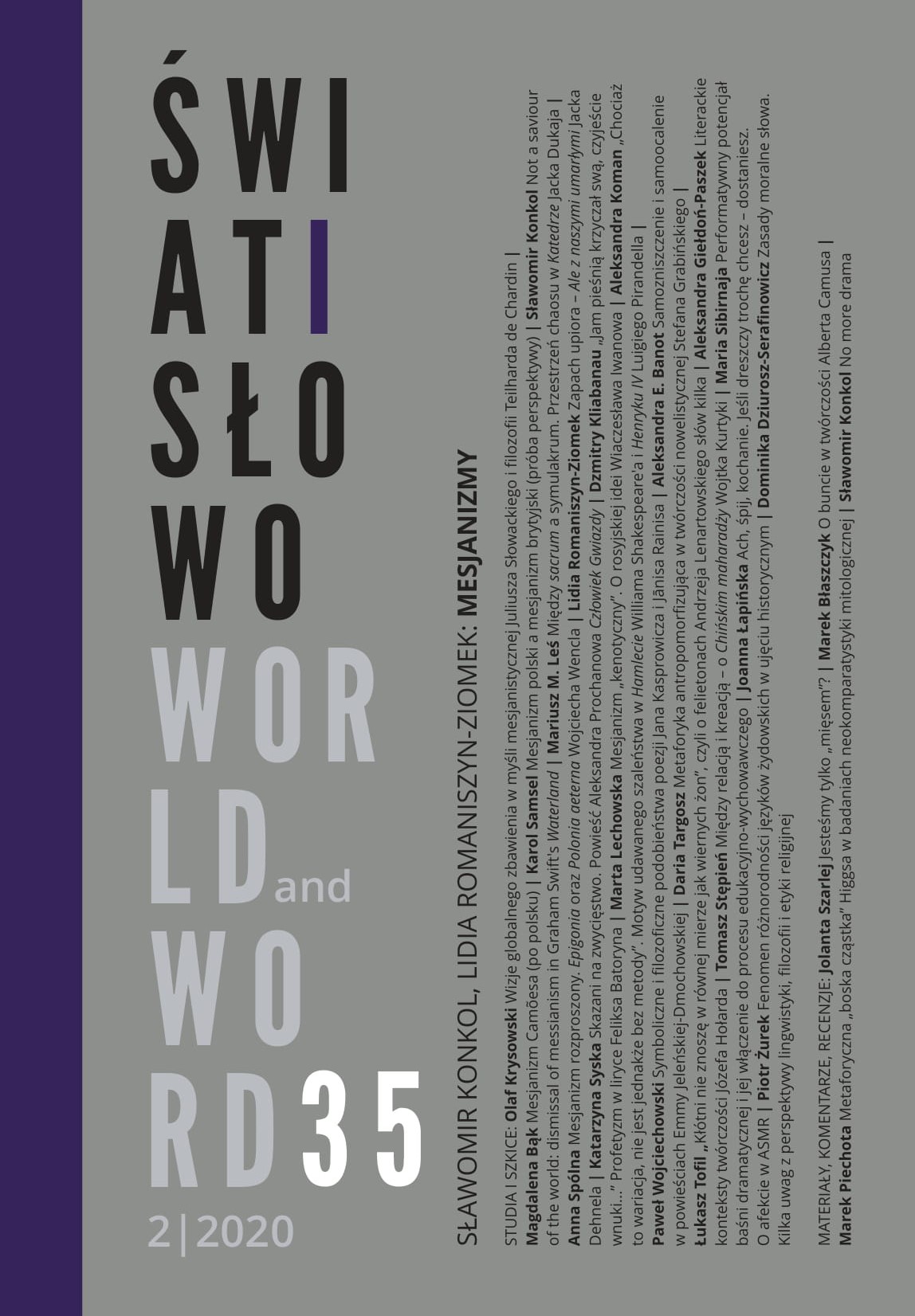Wizje globalnego zbawienia w myśli mesjanistycznej
Juliusza Słowackiego i filozofii Teilharda de Chardin
The visions of global salvation in Juliusz Słowacki’s messianic thought
and the philosophical works of Teilhard de Chardin
Author(s): Olaf KrysowskiSubject(s): Philosophy, Language and Literature Studies, Studies of Literature, History of Philosophy, Polish Literature, Contemporary Philosophy, Philology
Published by: Akademia Techniczno-Humanistyczna w Bielsku-Białej
Keywords: Juliusz Słowacki;Teilhard de Chardin;messianism;eschatology;pantheism;spirit;knowledge;mind;personalization;theosis;globalization;Alpha;Omega;New Jerusalem
Summary/Abstract: Juliusz Słowacki and Teilhard de Chardin did not have much in common. The former was a Polish poet who wrote in the first half of the 19th century using a literary-pictorial style. The latter, on the other hand, was a French philosopher working in the first half of the 20th century using a scientific and intellectual style. In spite of these differences, one may get the impression that they both followed the same goal: to learn and explain the principles of the development of the world, from its origin to its end, from Alpha to Omega. This aspiration was accompanied by a belief (in Słowacki’s case, a messianic one) that the progress of existence leads to salvation and takes place according to a certain plan. One of the main mechanisms of this plan is the process of lifting the consciousness through the evolution of various biological forms towards its final shape – unity with God who is both a person and the absolute which encompasses all of the creation. Although the poet and the philosopher used different communication codes, their works share a common vision of evolution as a transition from an unconscious, dispersed existence to a united being in which the spirit, the knowledge and the mind can achieve a “global”, yet personalized level.
Journal: Świat i słowo
- Issue Year: 2/2020
- Issue No: 35
- Page Range: 15-39
- Page Count: 25
- Language: Polish

